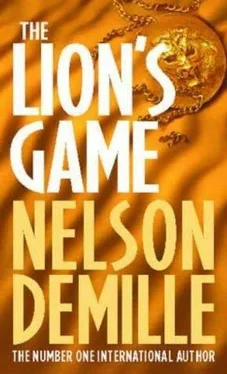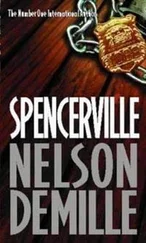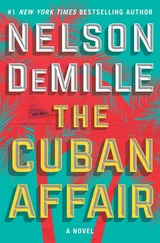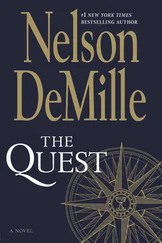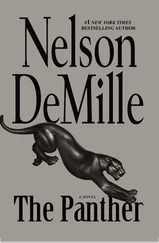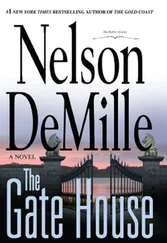He thought about the four young women, scantily dressed, in the convertible car. Aside from his confusion about what to do, he recognized and admitted to a strange desire, a longing to sleep naked with a woman.
In Tripoli, this was almost impossible without danger. In Germany, there were Turkish prostitutes everywhere, but he could not bring himself to buy the body of a fellow Muslim. He had contented himself in France with African prostitutes but only when they assured him that they were not Muslim. In Italy, there were the refugees from the former Yugoslavia and Albania, but many of these women were also Muslim. He recalled, once, being with an Albanian woman who he discovered was Muslim. He had beaten her so badly he wondered if she'd survived.
Malik had said to him, "When you return, it will be time for you to marry. You will have your pick of the daughters from the best families in Libya." In fact, Malik had mentioned one by name-Alima Nadir, the youngest sister of Bahira, who was now nineteen years old, and still without a husband.
He thought of Alima; even though veiled, he sensed she was not as beautiful as Bahira, but he also sensed in her the same brashness he had liked and also disliked in Bahira. Yes, he would and could marry her. Captain Nadir, who would have disapproved of his attentions to Bahira, would now welcome Asad Khalil as a hero of Islam, the pride of the fatherland, and a prized son-in-law.
A light blinked on his dashboard, and a small chime sounded. His eyes scanned the instruments, and he saw he was low on fuel.
At the next exit, he drove off the ramp onto a local road and into a Shell Oil station.
Again, he chose not to use his credit card and went to a pump marked SELF-SERVICE, CASH. He put on his eyeglasses and got out of the Mercury. He chose high-octane gasoline and filled the tank, which took 22 gallons. He tried to convert this into liters and estimated the liters at about a hundred. He marveled at the arrogance, or perhaps the stupidity, of the Americans for being the last nation on earth not to use the metric system.
Khalil replaced the pump nozzle and noticed that there was no glass booth where he could pay. He realized he had to go into the small office, and he cursed himself for not noticing this.
He walked to the office of the gasoline station and went inside.
A man sat on a stool behind a small counter, dressed in blue jeans and a T-shirt, watching television and smoking a cigarette.
The man looked at him, then looked at a digital display board and said, "That'll be twenty-eight eighty-five."
Khalil put two twenty-dollar bills on the counter.
As the man made change, he said, "Need anything else?"
"No."
"Ah got cold drinks right there in the frigerator."
Khalil had difficulty understanding this man's accent. He replied, "No, thank you."
The man counted his change out and looked at Khalil. "Where you from, bud?"
"From… New York."
"Yeah? Long drive. Where you headin'?"
"To Atlanta."
"You don't want to miss 1-20 this side of Florence."
Khalil took his change. "Yes, thank you." He noticed that the television was showing a baseball game.
The man saw him glance at the television and said, "Braves are leadin' New York, two-zip, bottom of the second." He added, "Gonna kick some Yankee ass today."
Asad Khalil nodded, though he had no idea what the man was talking about. He felt sweat forming on his brow again and realized it was very humid here. He said, "Have a good day." He turned and walked out of the office to his car.
He got in and glanced back at the big window of the office to see if the man was watching him, but the man was looking again at the television.
Khalil drove quickly, but not too quickly, out of the gasoline station.
Asad Khalil got back on 1-95 and continued south.
He realized that his greatest danger was the television. If they began to broadcast his photo-and they could be doing that even now-then he was not entirely safe anywhere in America. He was certain that the police all over the country had his photograph by now, but he had no intention of having any contact with the police. He did, however, need to have contact with a small number of Americans. He flipped his sun visor down and studied his face in the visor mirror, still wearing his eyeglasses. With his hair parted and the gray added, the false mustache, and the glasses, he was fairly certain that he didn't look like any photo that existed of him. But they had shown him in Tripoli what the Americans could do with a computer, adding a mustache or beard, adding eyeglasses, making his hair shorter, lighter, or combing it differently. He did not think that the average person was so observant as to see through even the thinnest of disguises. The man in the gasoline station had obviously not recognized him because if he had, Khalil would have seen it in the man's eyes immediately, and the man would now be dead.
But what if the gas station had been filled with people?
Khalil glanced at his image one more time, and it suddenly came to him that there was no photograph of him smiling. He had to smile. They had told him that several times in Tripoli. Smile. He smiled into the mirror and was astonished at how different he looked, even to himself. He smiled again, then flipped the visor back.
He continued driving and continued to think about his photograph on television. Perhaps that would not be a problem.
They had also told him in Tripoli that, for some reason, the Americans placed the photographs of fugitive criminals in all post offices. He didn't know why the Americans chose post offices to display the photographs of fugitives, but he had no business in post offices, so it was of no concern.
He thought, too, that if he and his intelligence officers had reasoned and planned correctly, then the Americans believed that Asad Khalil had flown out of the country, directly from the airport in New York. There had been much debate about this. The Russian, Boris, had said, "It doesn't matter what they think. The FBI and local police will be looking for you in America, and the CIA and their foreign colleagues will be looking for you in the rest of the world. So, we must create the illusion that you are back in Europe."
Khalil nodded to himself. Boris understood the game of intrigue very well. He had played this game with the Americans for over twenty years. But Boris once had unlimited resources for his game, and Libya did not. Still, they agreed with him and had created another Asad Khalil, who would commit some act of terrorism somewhere in Europe, probably in the next day or two. This might or might not fool the Americans.
Malik had said, "The American Intelligence people of my generation were incredibly naive and unsophisticated. But they have been engaged in the world long enough to have developed the cynicism of an Arab and the sophistication of a European and the duplicity of an Oriental. Also, they have developed very advanced technology of their own. We should not underestimate them, but neither should we overestimate them. They can be fooled, but they can also pretend they are being fooled. So, yes, we can create another Asad Khalil in Europe for a week or so, and they will pretend to be looking for him there, while all the time they know he's still in America. The real Asad Khalil should not count on anything except himself. We will do what we can to cause a distraction, but you, Asad, should live every moment in America as though they are five minutes behind you."
Asad Khalil thought of both Boris and Malik, two very different men. Malik did what he did out of his love for God, for Islam, for his country, and for the Great Leader, not to mention a hate for the West. Boris worked for money and did not especially hate the Americans or the West. Also, Boris had no God, no leader, and, in reality, no country. Malik had once described Boris as pitiable, but Asad thought of him as pitiful. Yet, Boris himself seemed happy enough, neither bitter nor defeated. He once said, " Russia will rise again. It is inevitable."
Читать дальше
